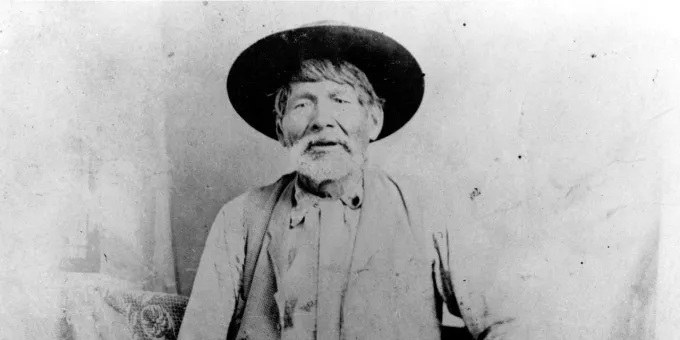It wasn’t so long ago that the Augustine Band of Cahuilla Indians was considered the smallest Native American tribe in the entire country. Once down to just eight people, the Augustine Band’s population is still tiny, with only about 20 enrolled members. But the resilience and perseverance of this federally recognized tribe in the eastern Coachella Valley, about 30 miles from Palm Springs, can’t be underestimated.
And the forward-thinking, innovative Augustine Band looks toward its future with hope and optimism, says tribal chairperson Amanda Vance. “I hope the visitors who come to Augustine gain an understanding and knowledge of who we are as a tribe and what we stand for,” says Vance. “Which is community growth and empowerment, stewardship of the land and resources, and prosperity through economic opportunity and energy sovereignty.”
Nine separate and independent Cahuilla tribes live in Southern California and are divided into three main geographic groups: Desert, Mountain, and Western. With a 540-acre reservation southwest of Coachella that was established by Congress in 1891, the Augustine are a Desert Cahuilla tribe. While closely linked by language and cultural traditions, Vance says there are still differences between the Cahuilla bands, including variations in the dialects they speak.
Most Augustine members live within about five miles of the reservation and currently only one person resides on tribal land. Vance says that will soon change as the tribe plans and builds a residential area for all of its members. She believes that having the tribe live together on its own land will be especially valuable for the Augustine children.
“It’s very important for them to see the hard work that goes into this and not just think that things pop out of the ground,” says Vance. “You benefit from hard work. And I believe the children, by being around each other and experiencing the same things, that when they go onto the tribal council, it will be a lot easier for them to come together. To understand what’s going on and move forward.”
As a desert people, the Augustine people face a number of environmental challenges and have taken steps to ensure that they are able to meet their energy and water needs. In 2008, the tribe established the Augustine Solar Energy Park, an operation which sustainably generates enough energy for the equivalent of 500 homes and provides most of the power for tribal businesses. The Augustine are also committed to protecting and preserving safe drinking water sources through the careful management of the reservation’s precious aquifer.
It’s all consistent with the Augustine tribe’s desire to honor its ancestors while creating a prosperous future. As Vance wrote in a recent tribal publication, “Above all, from integrity and unity to family, we are committed to the values and vision long revered by our ancestors. We have made substantial progress. Yet we live and run our business modestly, as we do not believe in excess. We are honored to work on behalf of our people, the community, and the region, as well as all generations yet to come.”
Experiencing the Augustine Reservation
Dubbed the Coachella Valley’s “best-kept secret,” the Augustine Casino has won numerous honors from local publications, including top casino from the Desert Sun newspaper, while Palm Springs Life readers voted the casino’s Áyily Bar to the magazine’s best-of list. With 170 employees and a commitment to hire locally, the casino not only brings vital revenue to the tribe but makes a substantial contribution to the Coachella Valley economy. An impressive 25 percent of the employees, most of whom are minorities and women, have worked at the casino for more than a decade.
One of the tribe’s most important initiatives is Temalpakh Farm, a 33-acre certified organic farm that began operations in 2012. Temalpakh means “from the earth” and the farm aims to provide a source of healthy, affordable, and sustainably grown food for the tribe and surrounding community. Visitors can pick up such seasonal produce as peppers, tomatoes, and cauliflower at the farm’s market, which also has a smoothie bar.
Vance’s late mother Mary Ann Martin, who served as tribal chairperson for 27 years, was instrumental in the development of the farm as part of her mission to achieve tribal self-sufficiency. “My mother was inspirational in what I do today,” says Vance. “It has been my goal to complete everything that she had started, and the farm was one of those projects. So the farm is very near and dear to my heart because it was one of the last projects she didn’t get a chance to complete.”
A Unique Story
The Augustine tribe derives its name from Captain Vee-Vee Augustine, who was born in 1820. But the tribe traces its history back at least 3,000 years ago to the time when the Cahuilla people became the first known inhabitants of the Coachella Valley.
The Desert Cahuilla depended on the area’s abundant mesquite trees for food. They also hunted rabbits, as well as such big game as desert bighorn sheep and deer in the nearby mountains. As many as 15,000 Cahuilla lived in the area before the numbers plunged with the arrival of Europeans. During the 1800s, the Augustine tribe, as well as its fellow Cahuilla bands, was decimated by disease, especially during a smallpox outbreak in 1863 that killed more than 80 percent of the population.
By 1972, Roberta Augustine, Martin’s mother and Vance’s grandmother, was the tribe’s only surviving adult member. But under Martin’s leadership, the tribe began to recover. She and her family moved onto the reservation and in 2002 helped establish the Augustine Casino, which has gone on to generate an economic impact of nearly $200 million in the Coachella Valley.
As the Augustine website summarizes Martin’s achievements, the tribe “went from virtual non-existence as the smallest tribal nation in the United States to a burgeoning economic powerhouse. This continuing monumental achievement has been built on a foundation of principles, overcoming obstacles with grace, and learning to triumph.”
